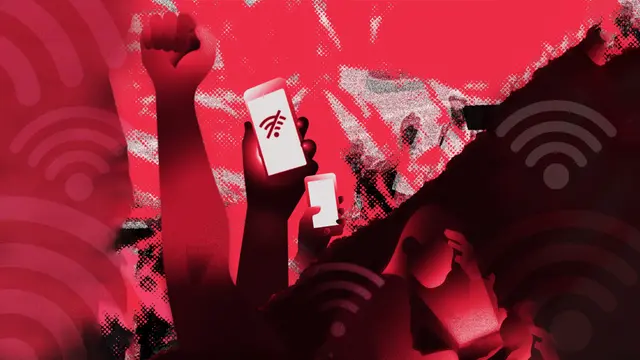Five ICT organizations in Iran have sent an open letter to the President, warning about the security, economic, and social consequences of cutting or heavily restricting global internet access. This follows a military attack by Israel on Iranian soil.
The letter, addressed to Masoud Pezeshkian as President, the National Security Council, and the Supreme Cyberspace Council, argues that blocking internet access is an ineffective response to cyber threats. The signatories warn it could undermine national governance, deepen Iran’s isolation, and harm technological and economic infrastructure.
Internet Shutdowns as a Last Resort
The organizations emphasized that global internet shutdowns should only be implemented as a last defensive measure and require direct presidential approval.
The letter was signed by five entities: the Iran Computer Trade Organization, the National Union of Virtual Businesses, the ICT Commission of Iran’s Chamber of Commerce, the Innovation and Productivity Commission of Tehran Chamber of Commerce, and Tehran’s Internet Businesses Association.
In their open letter, the organizations outlined the following concerns:
- Weakening National Governance:
Restricting internal media activities has led to a mass migration of journalists and media professionals. This has handed over Iran’s media landscape to external players. The organizations warn that widespread internet outages could lead to a similar fate for national cyberspace governance. Emerging technologies, such as Starlink, could dominate at lower costs, making intervention impossible. - Economic and Competitive Damage:
Iran's digital economy supports thousands of businesses reliant on global internet services for innovation and production. Severe restrictions would allow multinational companies to dominate Iran’s virtual market without contributing taxes or respecting cultural priorities. This would make domestic economic policy irrelevant in this domain. - Cybersecurity Challenges:
Iranian ICT professionals currently operate close to global benchmarks. Disruptions to internet access would erode this advantage. Cybersecurity relies on collaboration with international communities for timely updates and alerts. Losing these connections could lead to critical system vulnerabilities. - Finalizing Iran’s Isolation:
Existing sanctions have already excluded Iran from global economic and scientific cycles. Cutting access to global information networks would deepen this isolation, erasing Persian language from global platforms and severing connections between Iranians and other nations. Public diplomacy would suffer greatly. - Threats to Social Stability:
Excessive use of VPNs has exposed Iranian behavioral data to foreign entities and increased domestic cyberattacks. Restricting access to news sources would worsen misinformation, deepen mistrust among citizens, and weaken social stability. Transparent communication channels are essential to fostering trust and maintaining societal cohesion.
The letter concludes with an appeal for engagement with global technology networks and support for domestic talent as critical components for national strength. The signatories offer to collaborate on enhancing digital resilience and national infrastructure while urging a reconsideration of ICT-related defense policies.











